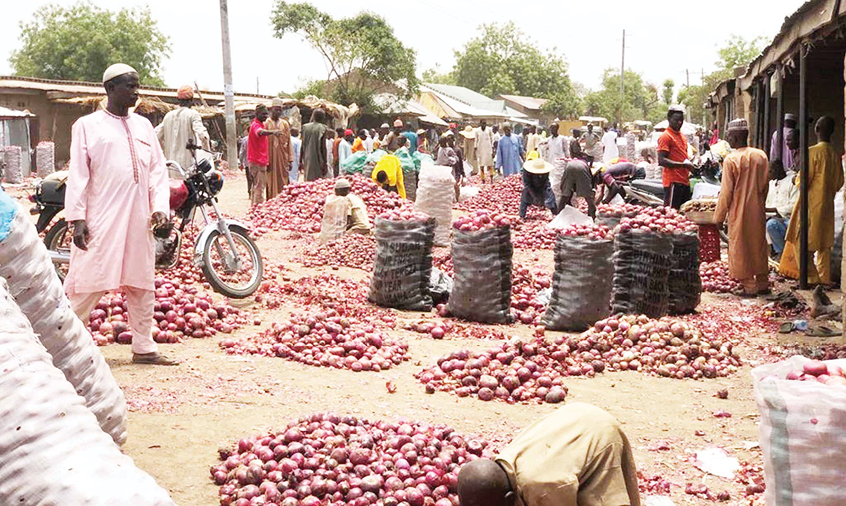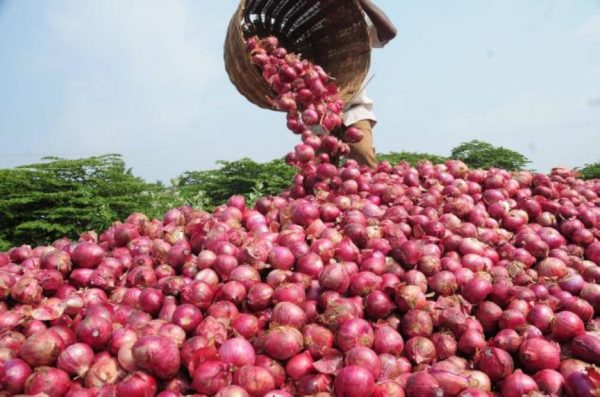The Nigerian Export Promotion Council (NEPC) has raised concerns over the low profits Nigeria earns from its onion trade, despite being one of the largest producers in Africa. With nearly two million tons of onions produced annually because the country’s output remains significantly below its true potential, largely due to the high percentage of onions being sold in their raw form. This piece of information was given during a stakeholders’ interactive session on the development of an onion export strategy in Gombe State.
According to the Executive Director of the NEPC, Ms. Nonye Ayeni, who was represented by Mustapha Faruk, disclosed that while states across the North East, North West, and North Central regions including Gombe, Sokoto, Kebbi, Zamfara, Katsina, Kano, Kaduna, Jigawa, Yobe, Borno, Bauchi, Taraba, Plateau and the Federal Capital Territory are engaged in onion cultivation, the country still struggles to maximise its potential due to inadequate processing and export strategies. Ayeni revealed that the onion value chain encompasses a broad spectrum of stakeholders, including farmers, processors, merchants and logistics providers.
Despite the potential to produce various value-added products such as onion paste, dehydrated onion flakes, onion powder, onion oil, onion vinegar, onion sauce, pickled onion, onion wine, and onion-based beverages, a whopping 99.9 per cent of Nigerian onions are traded in their raw form. This lack of value addition significantly reduces the profit margins and export earnings for the country. The NEPC seeks to engage with critical stakeholders to develop a comprehensive Onion Export Strategy document with the aim to tackle existing bottlenecks that hinder formal exports, reduce onion production levels, and limit the nation’s export revenues. This would enhance the nation’s competitive edge in the global onion market, which is increasingly being tapped by other nations.

The NEPC boss emphasised that as one of the top onion producers globally, Nigeria cannot afford to allow other countries dominate the market while reaffirming the commission’s commitment to its ‘Double Your Export’ initiative, which seeks to partner with relevant stakeholders to revamp the onion sector for better export outcomes. The initiative is critical to ensuring that Nigeria capitalises on its vast production capacity and secures a more prominent place in the global onion trade. On his part, the President of the Chamber of Commerce, Sale Sadauki, pointed out the critical need for farmers to select high-quality seeds that can be stored for extended periods without damage. He acknowledged NEPC’s efforts at providing improved seed varieties with multiple layers, which can withstand longer storage times and remain viable for export without significant loss.
The Commissioner, Ministry of Commerce, Trade, and Industry, Nasiru Aliyu, lauded the NEPC for organising the event, especially at a time when there is growing awareness among farmers about the value and quantity of onions produced in Nigeria while the President of Federation of Agricultural Commodity Association of Nigeria (FACAN), Victor Iyama had informed that farm insecurity is impacting not just domestic onion supply, but also international exports. Nigeria, reputed as the seventh largest onion producer in the world, but not on the global onion export map, Iyama stated that farmers have been exporting the commodity to other countries in West Africa, but that the volume had dropped significantly as a result of armed banditry.




1 Comment
As the largest producers of onions globally, there should be great revenue coming from the produce.